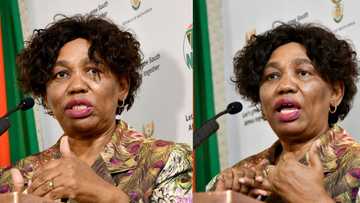SARS Is Targeting Wealthy SA Citizens to Improve Compliance and Collection
- The South African Revenue Service (SARS) has reportedly pushed its focus towards richer South Africans to improve collection and compliance
- SARS sent notices out to wealthy citizens drawing attention to a unit that Finance Minister Tito Mboweni said would be established to raise additional funds
- The well-to-do individuals include those who are in possession of assets worth more than R75 million, according to reports
PAY ATTENTION: Click “See First” under the “Following” tab to see Briefly.co.za News on your News Feed!
The South African Revenue Service (SARS) has directed its focus to wealthy South Africans in an attempt to better its revenue compliance and collection. Finance Minister Tito Mboweni announced in his budget speech that there would be a unit established to improve compliance.
This unit will target individuals with detailed financial arrangements and wealth - known as the High Wealth Index (HWI) Unit. The HWI came into effect on 1 April. Following the announcement, new operating models were adopted.
The aforementioned operating models will allow for SARS to refine its approach to fishing non-compliance out.

Source: Getty Images
According to BusinessTech, a report was published by the Organisation for Economic Co-operation and Development (OECD) in which it stated that the HWI unit has a limited focus on those who have assets worth more than R75 million.
PAY ATTENTION: Never miss breaking news – join Briefly News' Telegram channel
SARS sends letters to individuals who are being scrutinised
SARS reportedly sent letters out to a few of the wealthy taxpayers it plans to watch. The letters detailed future plans for the unit and how it will improve tax collections. It further informed the taxpayers how the unit will monitor their tax portfolios and profiles.
Nine key objectives SARS will focus on
In the letter sent by SARS, it stated that its mandate requires it to collect revenue to assist the government with building a state that is capable of ensuring social and economical development. The revenue service listed nine key objectives it would focus on:
1. Providing clarity and certainty to traders and taxpayers in terms of their obligations
2. Allowing for traders and taxpayers to easily comply with their obligations
3. Pinpoint traders and taxpayers who are non-compliant, and make non-compliance hard and expensive
4. Bring forth a high performing, agile, engaged, evolved and diverse workforce
5. Broaden and grow the use of data with knowledge management to ensure integrity, among other things
6. Remodel systems to assist with streamlined online services
7. Indicate productive resource stewardship to bring forth performance excellence and quality outcomes
8. Work hand-in-hand with stakeholders to enhance the tax ecosystem
9. Develop trust and confidence from the public in terms of the tax administration system
Compliance is essential
According to MoneyWeb, in order for individuals to 'protect' themselves from SARS, it is imperative that one ensures compliance. The report advised taxpayers and traders to immediately address any correspondence received from SARS through a tax specialist or tax attorney.
Previously, Briefly News reported that R400 billion worth of offshore assets will be the focal point for the South African Revenue Service (SARS) as they aim to gather the maximum amount of tax revenue owed to them, while also advising those with offshore assets to get their affairs in order.
SARS Commissioner Edward Kieswetter stated that the country holds an automatic protocol that exchanges information with around 160 different counties. It has currently obtained data from 87 of said countries.
According to Kieswetter, the information received includes the taxpayers' name, tax reference number, account number, account balance and the income generated from the account.
Enjoyed reading our story? Download BRIEFLY's news app on Google Play now and stay up-to-date with major South African news!
Source: Briefly News




